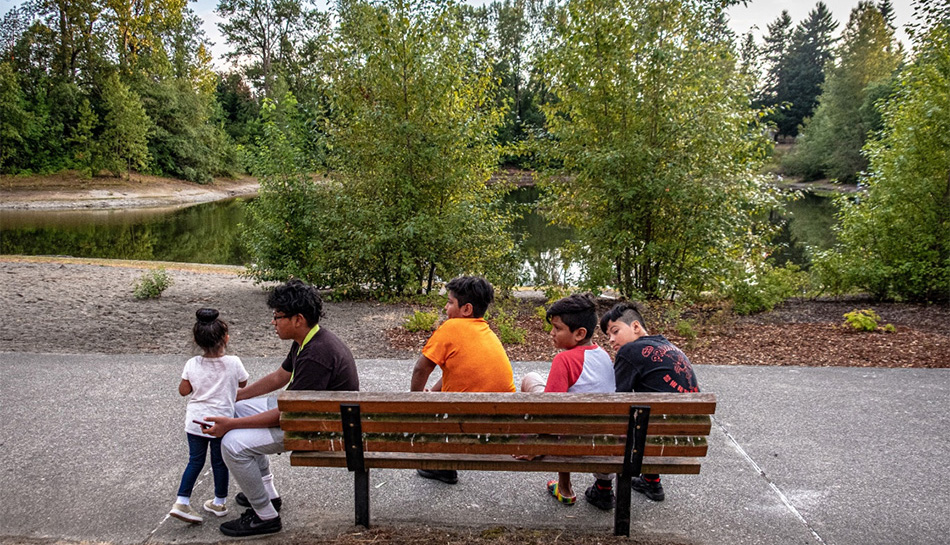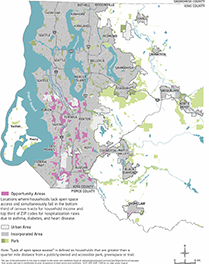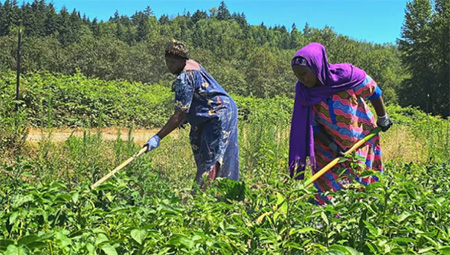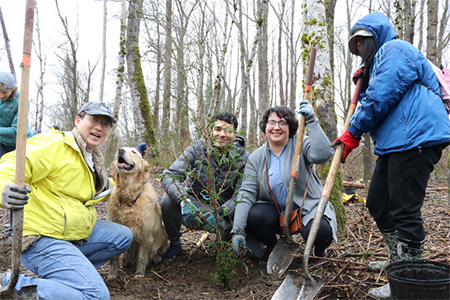Conservation Futures Match Waiver
Conservation Futures grants can provide a match waiver for certain projects, which means the program could pay 100% of the eligible costs of buying open space.

As noted in the King County Land Conservation Initiative Advisory Group Final Report, “there are many neighborhoods in which the past history of inequities, discrimination, injustices, and limited regional investment is evident today and affects the daily life of the residents.” Providing a match waiver helps “eliminate disparities in access to public open spaces and trails in communities with the greatest and most acute needs.” This program is part of the equity focus of the King County Land Conservation Initiative.
Qualifying as an Opportunity Area
 A project may qualify for a match waiver if it is determined to be in an Opportunity Area. There are two ways to qualify as an Opportunity Area. Please visit the interactive map viewer to gather data about your project area (also available through the opportunity area data report webpage), and consider these additional data sources to help make the case that your project is in a match waiver area. All match waiver requests require community engagement, and require Committee determination as to whether they qualify for a match waiver.
A project may qualify for a match waiver if it is determined to be in an Opportunity Area. There are two ways to qualify as an Opportunity Area. Please visit the interactive map viewer to gather data about your project area (also available through the opportunity area data report webpage), and consider these additional data sources to help make the case that your project is in a match waiver area. All match waiver requests require community engagement, and require Committee determination as to whether they qualify for a match waiver.
- Meet three mapped criteria
- Project is in the lowest 1/3 of census tracts for income,
- Project is in the highest 1/3 of ZIP codes for hospitalization rates, and
- Residences in the project area lack open space within a ¼ mile in the urban area, or within 2 miles in the rural area.
 Or tell us your story
Or tell us your story
Projects outside of the mapped areas also can qualify, if you can tell us how the people served by your project experience limited open space access and demonstrated hardships (such as income, health, social or environmental disadvantages; sometimes described as a lack of some of the Determinants of Equity).
Key steps for applications
-
Connect with us — we can help.
Please contact Ingrid Lundin, Conservation Futures Coordinator, to discuss your project, even if it's just an idea. We’d love to talk with you about whether your project may be a good fit for a match waiver. -
Engage your community
 Community engagement is critical in this process. In your application and during the review process, the review committee will want to hear about your past, current, and planned engagement of your community in developing your project. Be prepared to tell us how your project responds to your community’s stated goals. We require at least two letters of support for each project - ideally from community-based organizations working with the local community. See here for a helpful toolkit on community engagement.
Community engagement is critical in this process. In your application and during the review process, the review committee will want to hear about your past, current, and planned engagement of your community in developing your project. Be prepared to tell us how your project responds to your community’s stated goals. We require at least two letters of support for each project - ideally from community-based organizations working with the local community. See here for a helpful toolkit on community engagement.
-
Consider the big picture
For governmental/agency applicants, we want to know how your local government is working on equitable community development and preventing displacement in the neighborhood where you propose to add green space. See our summary of research on this topic.
 Translate
Translate